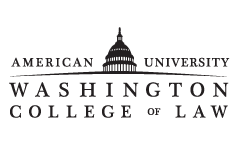Abstract
Human cloning, the caning of teen vandals, and the belief that aliens descend from space to abduct humans and livestock all hold something in common: they are more popular than Congress. With the 112th Congress bottoming out at a record-low 9% approval rating, it is clear that Americans are deeply unsatisfied with the gridlock gripping Washington. While it is popular, and even easy, to lambaste Republicans for blanket obstructionism and to condemn Democrats for failure to stand up to minority bullying, collective blame shifting will not breach the dam of a hyper-partisan Congress. Instead, individuals hoping to get Congress moving again must look for small changes to procedure that will result in large outcomes in terms of party comity and legislative efficiency. Underlying the partisan gridlock has been the growing use and abuse of the filibuster, a Senate procedural anomaly that allows even a single senator to bring legislation to an indefinite halt. At the start of the 112th Congress, all returning Democratic senators signed a letter to Senate Majority Leader Harry Reid urging filibuster reform. However, reforms failed to materialize and the obstructionism continued just as adamantly as before. As the 113th Congress is elected and prepares to head to Washington in January 2013, it must look to directly address the threat of filibuster abuse or risk continued legislative obstructionism and political polarization.
This Article will examine the potential avenues for reform in the 113th Congress by exploring the efficacy of several options for filibuster reform and determine whether the incoming Congress would realistically enact them. Part II of this Article will look at the evolution of the filibuster as a tool for delay and obstruction in the Senate and examine the modern day problems of continued growth in filibuster threats and use. Parts III and IV will propose and examine calls for reform, both in the form of hard rule reform as well as soft compromises. Finally, Part V will present a determination and conclusion addressing the potential for legislative procedural reform that can be enacted in the immediate future.
